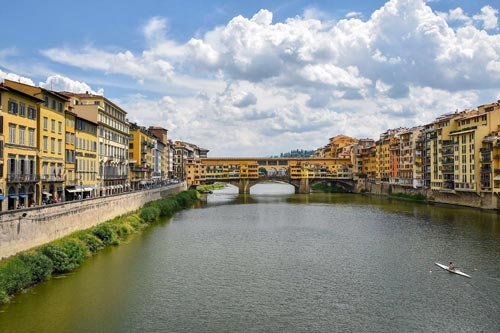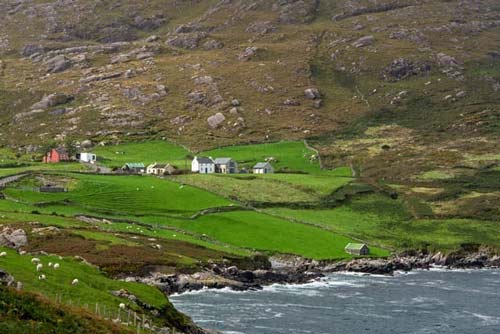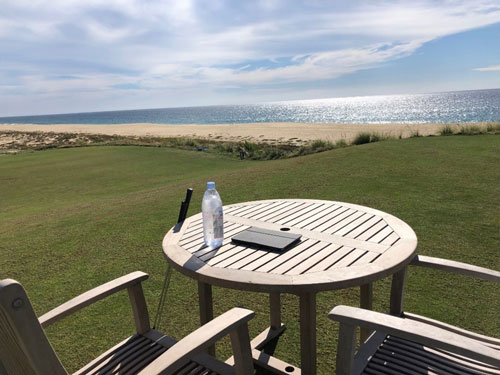The easiest money I ever made and lost was in the stock market.
Here’s the story of my wild ride, and how I invest my money today…
In 1999, when I was just 24-years-old and fresh out of university with a degree in finance, I found a “sure thing” investment.
Ireland’s government-run telecommunications company Telecom Eireann was transitioning into the private-sector with a floatation on the Irish, London and New York stock exchanges.
This meant Joe Public could buy shares of the company and get fabulously wealthy in the new internet era.
At the time it felt as if the entire country was going all in. I wasn’t going to be the only sucker to miss out, so I tapped my life-savings, virtually ALL of my life savings, and feverishly bought too…
Champagne Bubbles
Here’s how former Irish politician Pat Rabbitte describes the scenes at the time:
“The environment of hype, balloons and hoop la surrounding the flotation must be recalled. The people were bombarded with hard-sell advertising that cost the taxpayer a fortune. It was relentless, pervasive, seductive and calculated to persuade the unsuspecting punter that this was really a kind of government stock and that he or she could not go wrong, that he or she was on a safe bet. The atmosphere of champagne bubbles, giggly photo opportunities and mad dashes across the Atlantic attracted unprecedented interest from citizens who had not previously purchased a share but they bought the message.”
It was a party atmosphere. As if everyone had won the lottery at the same time. In all some 500,000 investors bought Telecom Eireann from the government. I was among those 500,000 “savvy” investors…
I had invested over £5,000 which was a lot of money for a 24-year-old kid. It was almost everything I had. I even became part of the media hype train when a national newspaper came by my day job in Dublin. I told the reporter, “I felt there was no downside.”
My picture appeared on page 3 of the Evening Herald, with the headline “Waiting for the Dough to Flow.”
POP!
I was young and I was confident. Remember, I was a finance grad and even had a little success in stocks already.
But what I didn’t realize is that I was investing in the end stages of a massive bubble in telecom and dotcom stocks (I’d learned plenty about bubbles at university, but apparently the lesson needed a painful, real-life reinforcement!)…
Within about 12 short months my Telecom Eireann shares had soared and then tanked. It was a classic stock market roller coast ride. My common sense eventually kicked in just in time and I escaped with a small gain, but many suffered significant losses.
I consider myself very fortunate, not that I made it out with my life savings intact, but that I learned a valuable lesson very young—I hate stocks!
Dow 30,000
As a young guy in awe of financial experts on TV, and trusting of the government, and seeing how they got it so wrong and were so arrogant and unapologetic about it as people lost their life savings, I came to the conclusion the stock market was one big casino and I wanted no part of it.
Now with the Dow Jones Industrial Average hitting a new all-time high of 30,000 points last week and having its best month since 1987, you might think I’m an idiot for swearing off stocks and it certainly looks that way…
If you’re invested in stocks and have benefited from the run-up, I’m happy for you. Many of my friends are serious investors and I want them to be successful.
But when I see the media tout Dow 30,000 as if it’s a cause for celebration, and then look at unemployment numbers and modern-day bread lines stretching for miles long, it’s clear the stock market is totally out of touch with economic reality. Many of the people making money in stocks right now aren’t investors, they are speculators, like those who bought Eireann Telecom twenty years ago.
Maybe I am missing out on fast-fortunes, but I’m also sleeping soundly at night.
Getting Rich Slowly…
Another benefit from being burned by stocks early is that I switched my focus to real estate investing and then international real estate investing. Investing in real estate is harder, slower going, and sometimes more boring than stocks. You have to work and wait for your money.
But real estate is not subject to the rapid and wild fluctuations you see with the stock market. It can generate income. If you buy right, it can make you very rich. You can live in it, vacation in it, enjoy the life you’ve always dreamed of…all while making money.
Also, a home in an inherently desirable place will always have value. That’s the kind of peace of mind you can’t get from a tech stock.
That’s why, if ever there was a moment to diversify and protect your wealth, it’s now. Because when all your eggs are in one basket, you are fundamentally vulnerable.
Now is the moment to take some gains from those assets that have soared and put them somewhere that’s set to benefit from all this flux…somewhere you can buy cheap and generate strong yields.
In uncertain times…in all times in fact…strong yields tell one particular story. The demand for your real estate is real. People are willing to pay you to use it. It’s not speculation. It’s real world value.
I spend my winters in Cabo, Mexico, enjoying the ocean, the climate, and the golf. I bought a condo here a few years ago and it’s now worth around $150,000 more than I paid. And when I’m based in Europe or traveling and scouting around the world, I can rent this property for a handsome income.
It’s a working, rather than fleeting, kind of wealth security. It doesn’t make headlines. It’s not shrouded in speculation or pushed by TikTok influencers.
It’s the kind of investment that protects you from economic shocks, so you can create a life of ease, travel, fun, and adventure for yourself…while you enjoy more financial and personal freedom.
Of course, everyone’s investment needs are different, what’s right for me isn’t guaranteed to be right for you. And the 2008 housing bubble proved real estate isn’t without risk…
That said, with everything going on in the world right now, in the stock market and in the overall economy, I think it’s never been more urgent to consider international real estate as an investment.



